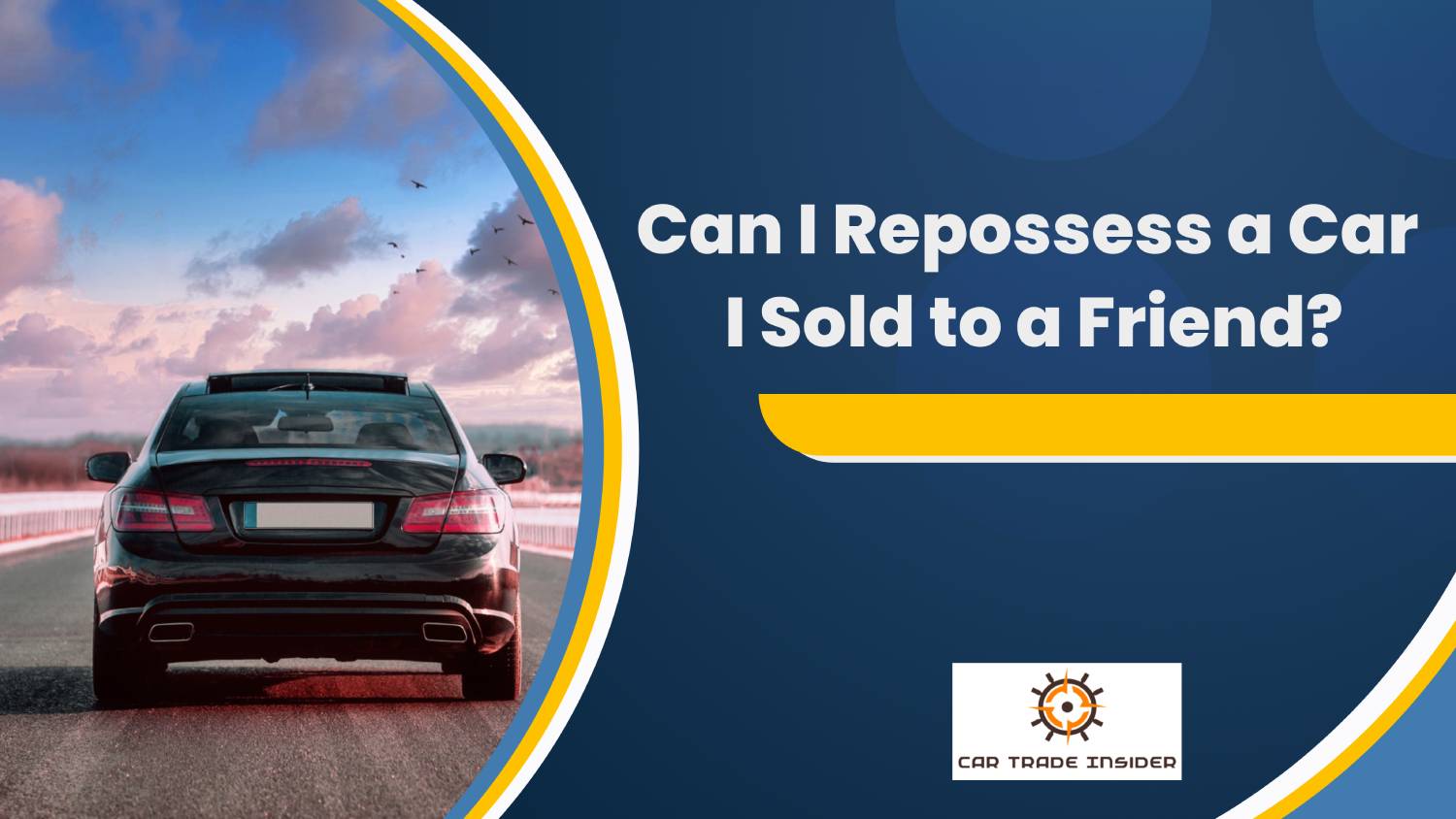When it comes to lending a car to a friend or selling it to them in a payment arrangement, things can get complicated quickly, especially if the friend stops making payments or refuses to return the vehicle.
In this article, we will explore the scenario of wanting to repossess a car that you sold to a friend, but they are no longer meeting their financial obligations, and provide you with various options for different situations.
Understanding the Situation
The scenario can be perplexing and stressful. You sold your car to a friend, and now they’re unable to meet their financial obligations. To navigate this situation effectively, it’s crucial to understand the details:
Scenario 1: Was There a Security Agreement?
The first question to consider is whether your friend signed a security agreement with you, pledging the car as collateral. If they did not, it might limit your options for repossession. A security agreement typically outlines the terms and conditions of the transaction, including what happens if the borrower defaults on payments.
Outcome: If there was no security agreement, proceed to Scenario 2.
Scenario 2: Payment Agreement Details
In this scenario, your friend agreed to make regular payments for the car until the loan was paid off. The terms of this agreement are crucial in determining your course of action.
- Outcome 1: If the car’s title is still in your name, and the registration is also under your name (not just the loan), you have a stronger case for repossession. This means you legally own the car, and your friend has defaulted on their payments.
- Outcome 2: If the title is in your name, but the registration is not, it could still work in your favor, but the situation may be more complex.
- Outcome 3: If both the title and registration are in your friend’s name, it becomes more challenging to repossess the car, as they have legal ownership.
- Outcome 4: If your friend stopped making payments, and the loan for the vehicle is in your name, it puts you in a difficult financial situation. You are now responsible for the payments, and your credit may be at risk if payments are consistently late or missed.
Scenario 3: Communication with Your Friend
The next step is crucial. Have you asked your friend to return the vehicle? Their response can influence your options.
- Outcome 1: If your friend refuses to return the car and expresses no intention to resume payments, it might be time to explore legal options.
- Outcome 2: If your friend is willing to return the car or resume payments, consider negotiating and finding an amicable solution.
Scenario 4: Legal Action
If your friend is uncooperative, taking legal action may be necessary. Here are the steps to consider:
- Small Claims Court: You can sue your friend in small claims court to recover the car and any money you’ve had to pay on the loan due to their default. You typically do not need a lawyer for small claims court.
- Gather Evidence: Collect all relevant documents, such as the sales agreement, payment records, and communication with your friend.
- Court Procedures: Familiarize yourself with the small claims court procedures in your state and follow them carefully.
- Potential Judgment: If you win the case, you will obtain a judgment ordering your friend to return the vehicle. If they do not comply, you can involve law enforcement to enforce the judgment.
Before taking legal action, assess the fair market value of the car. This will help you determine the amount you can claim in court. Consider seeking legal advice, especially if you’re unsure about the legal procedures involved in repossessing the car.
Things to Remember Before Repossessing Your Vehicle
Here are key considerations before proceeding with vehicle repossession:
- Locating the Car: Find the car, preferably in a public area, where repossession is legal.
- VIN Verification: Confirm that the Vehicle Identification Number (VIN) matches your records to ensure you have the right car.
- Legal Repossession: Repossess the car following the legal guidelines in your area. You can tow it, use spare keys, or seek professional assistance.
- Checking Car’s Condition: After repossession, inspect the car’s condition to see if any damage occurred during the process.
- Considering a Specialist: If the DIY approach seems complicated, consider hiring a repossession specialist.
Facing car repossession and seeking legal loopholes to protect your rights? Discover valuable insights in our article: Car Repossession Loopholes to Avoid Car Repossession.
Conclusion
Repossessing a car you sold to a friend can be a challenging and legally complex process. It is essential to have clear documentation of the agreement and communication with your friend.
While repossessing the car may not be straightforward, pursuing legal action in small claims court can be an effective way to resolve the situation and protect your interests.
FAQs
Can I repossess a car I sold to a friend without a security agreement?
No, repossession typically requires a clear security agreement that outlines the terms of the transaction.
What if my friend refuses to return the car but is willing to resume payments?
In this case, consider negotiating with your friend to find a mutually agreeable solution without legal action.
Can I report the car as stolen if my friend refuses to return it?
If you voluntarily gave your friend the keys and there was no security agreement, reporting it as stolen may not be an option.





